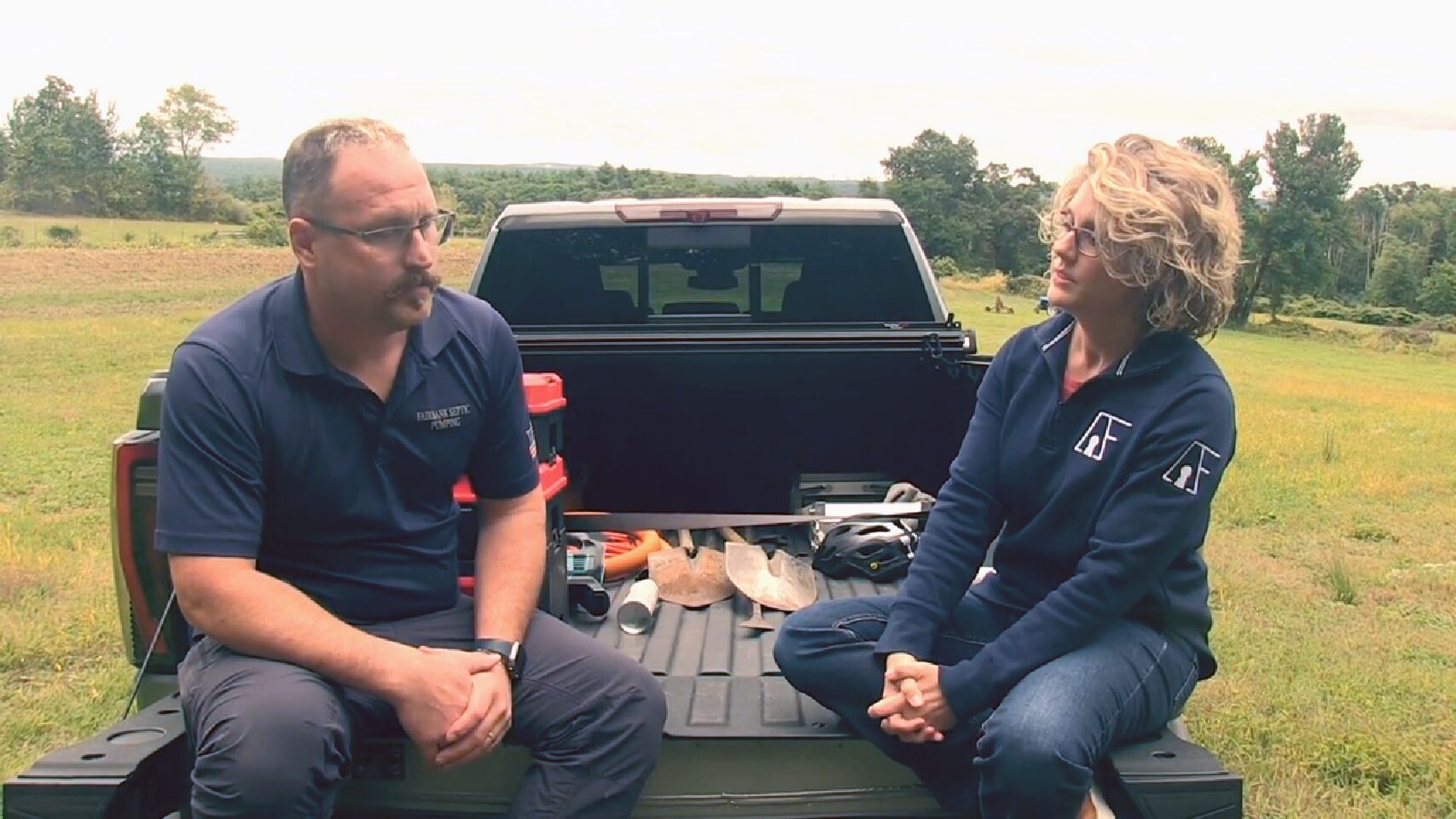Ashley Fuller of WayCAM’s “Meet Our Neighbors” series recently met with local expert Jonathan Fairbank of Fairbank Septic Plumbing in Sudbury to clarify what it means to maintain a septic tank.
Owning a home in Wayland comes with perks like great schools, beautiful foliage, and safe streets. It also comes with the less desirable responsibility of homeowners maintaining their own septic tanks. According to Fairbank, as long as residents stay informed about their responsibility, maintaining a septic system isn’t a burden. “With a little education and information, a lot of homeowners can maintain their septic systems in a much better, less fearful way,” he said.
Technicians like Fairbank acquire information about each property from the town, remove the covers on the tank, then pump it, removing the buildup of solids. Pumpers will recommend how often the homeowner should pump their system in the future and set up automatic reminders for when the system needs a refresh, he said. If the tank is working correctly, technicians can take care of all the details via regular pump-out calls. “Ninety-nine percent of systems are passive, and you don’t need to do anything but service them annually or biannually,” he said. “It’s not a super-complicated process.”
However, problems can occur if water stops flowing out of a tank. Fairbank said this is most often due to a backup of filters between the septic tank and the box that receives the wastewater output from the tank, though these issues are rare.
“If they’re not maintained properly, then the water flow out of the tank stops, which means that the water flow out of your house kind of backs up in your house,” he said. “That is a little scary, but a system without that or a system that’s working fine isn’t going to just back up on you all the time.”
A time-tested technology
Septic systems operate on centuries-old engineering principles. “The engineering, and the design and the construction are actually a pretty simple, very old technology,” Fairbank said. “Everything runs by gravity. We’re allowing water to separate solids, which just naturally happens. The problem arises from a lack of maintenance or understanding of how to use the system.” That’s why his favorite part of the job is educating homeowners on how their own septic systems work, he added.
“It’s going out and meeting people, showing them what I do, and showing an interest in their house as well,” Fairbank said. “I think people who are informed and educated about how a septic system works are much better customers to have, because they’re not panicking.”
Fairbank said he’s passionate about the role that septic systems play in the public good — ensuring that waste stays in carefully managed systems instead of polluting local water sources.
“If we don’t keep up with maintenance, if we don’t have these systems in place, we end up polluting the environment, polluting the waterways,” he said.
Sound septic practices are essential in a town like Wayland, where drinking water for many homes comes from wells. Liquid from septic tanks seeps into the groundwater and is turned into clean water by the time it reaches any wells. “The soil is what’s actually treating that water and filtering it, so the sand, the soil in the ground, is what’s the final treatment of the water before that water passes into our groundwater,” Fairbank said. “This is all in order to protect it.”
No public sewer system
Not every municipality is created equal. Larger towns and cities like Natick and Framingham have public sewer systems. Part of the reason Wayland and other towns like Lincoln and Sudbury rely on private septic tanks is that there had not been enough development to justify a sewer system when most homes were built, according to Fairbank.
“They didn’t really have commercial
and industrial infrastructure or businesses in place to justify [a sewer system], a lot of them were bedroom and farming communities,” he said. “On-site wastewater was the best way to sort of accommodate the need for recycling water.”
This is an individual responsibility in Wayland — all homeowners need to learn a little about how their system works and then leave the worrying to the professionals, Fairbank said.
“I think once you know more about what’s in the ground and kind of how simply it functions — have a local provider come out and open the tank and show you physically firsthand how it functions — I think people would be a lot more comfortable with it.”















